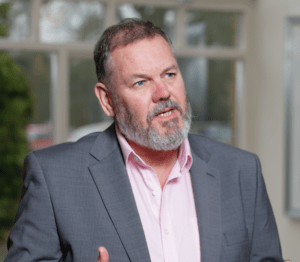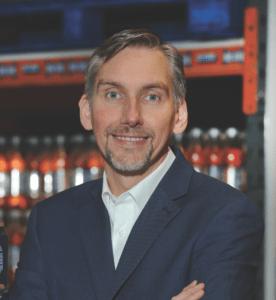Ahead of what could prove to be a pivotal year for the wholesale industry, Paul Hill asks leading companies what to expect from them and what they predict for the channel
Along with the potential ramifications of Brexit and track and trace, there is the threat of Asda entering the wholesale market, as well as the menthol ban to contend with. We hear from the leading associations, wholesalers, buying groups, insight firms and data companies to get their take on the 12 months ahead and what it could mean for your business.
 Bestway Wholesale, Dawood Pervez, managing director: “At Bestway, we now deliver 44% of our customer orders and expect to see the trend towards delivery increase even further next year. Meanwhile, in depot, we’ve noticed that retailers are tending to shop little and often, with smaller baskets enabling retailers to control waste and keep their storage space to a minimum for better efficiency. Online shopping continues to grow, too, which is great for Bestway as online retailers tend to have a bigger basket spend. 2020 will also see more wholesalers playing in the B2C sphere and we are already beginning to use the B2C experience gained from Bestway Retail to help our retailers develop their offer to consumers. Lastly, the lines between retail and foodservice will continue to blur, particularly through the continued rise of food to go and street food. We’ve developed our range to keep on top of these trends, incorporating things such as ‘fashionable’ ingredients.”
Bestway Wholesale, Dawood Pervez, managing director: “At Bestway, we now deliver 44% of our customer orders and expect to see the trend towards delivery increase even further next year. Meanwhile, in depot, we’ve noticed that retailers are tending to shop little and often, with smaller baskets enabling retailers to control waste and keep their storage space to a minimum for better efficiency. Online shopping continues to grow, too, which is great for Bestway as online retailers tend to have a bigger basket spend. 2020 will also see more wholesalers playing in the B2C sphere and we are already beginning to use the B2C experience gained from Bestway Retail to help our retailers develop their offer to consumers. Lastly, the lines between retail and foodservice will continue to blur, particularly through the continued rise of food to go and street food. We’ve developed our range to keep on top of these trends, incorporating things such as ‘fashionable’ ingredients.”
Bidfood , Lucy Pedrick, senior insights manager: “The focus on sustainable solutions is set to soar, with eateries looking to have more sustainable options on their menus over the next year. Localism is becoming more important on a menu, with consumers looking for a story and great credentials behind the food they are purchasing. Research shows that ‘hyper local’ is set to rise – meaning we could be seeing more restaurants and pubs having more homegrown offers on their menus. Gen Z is beginning to move into the workforce, and wholesalers also need to plan for how the face of consumers may change as a result. We know from research that this generation expect immediacy and flexibility in their purchases, and if the wholesale industry can’t keep up, the question lies, where will they go? Technology is vital here, as Gen Z is the first generation to grow up with it at their fingertips.”
, Lucy Pedrick, senior insights manager: “The focus on sustainable solutions is set to soar, with eateries looking to have more sustainable options on their menus over the next year. Localism is becoming more important on a menu, with consumers looking for a story and great credentials behind the food they are purchasing. Research shows that ‘hyper local’ is set to rise – meaning we could be seeing more restaurants and pubs having more homegrown offers on their menus. Gen Z is beginning to move into the workforce, and wholesalers also need to plan for how the face of consumers may change as a result. We know from research that this generation expect immediacy and flexibility in their purchases, and if the wholesale industry can’t keep up, the question lies, where will they go? Technology is vital here, as Gen Z is the first generation to grow up with it at their fingertips.”
Blakemore , James Russell, managing director – wholesale distribution: “I expect to see an ever-increasing speed of change happen across our industry and further downstream with our partners. Rollout of track and trace could be completed, the introduction of DRS in Scotland could make its mark on the rest of the UK and there’s the expectation of further regulation to combat HFSS products being introduced. We will also see more positive change driven by consumer needs as wholesalers and supply partners continue to focus on developing solutions to meet climate change and single-use plastic-reduction objectives. I think we will also see an acceleration in the provision and uptake of plant-based product solutions. This, in itself, is a positive opportunity for the wholesale channel providing a low-cost route to market to both supplier and retailer. We have our new distribution centre in Bedford opening in early 2021, so we will also be working hard to deliver on this.”
, James Russell, managing director – wholesale distribution: “I expect to see an ever-increasing speed of change happen across our industry and further downstream with our partners. Rollout of track and trace could be completed, the introduction of DRS in Scotland could make its mark on the rest of the UK and there’s the expectation of further regulation to combat HFSS products being introduced. We will also see more positive change driven by consumer needs as wholesalers and supply partners continue to focus on developing solutions to meet climate change and single-use plastic-reduction objectives. I think we will also see an acceleration in the provision and uptake of plant-based product solutions. This, in itself, is a positive opportunity for the wholesale channel providing a low-cost route to market to both supplier and retailer. We have our new distribution centre in Bedford opening in early 2021, so we will also be working hard to deliver on this.”
Caterforce, Gary Mullineux, interim managing director:  “Research is predicting that the number of vegans in the UK is set to increase by 327% in 2020. This presents a huge challenge and opportunity for the wholesale industry; on the one hand, it increases pressure on wholesalers to expand product ranges, but on the other it’s a whole new customer base to appeal to. There has also been an increase in demand for free-from products as we become more aware of intolerances and allergies to ingredients such as wheat, dairy or nuts. We have big growth plans for 2020 and we’ll be adding a large number of new products to our Chefs’ Selections range as well as building on the early success of our new coffee brand, Roast 440. We’ll also be launching our new CSR policy at this year’s supplier conference, which is taking place in Celtic Manor in this month. It will be an area of particular focus for the year ahead.”
“Research is predicting that the number of vegans in the UK is set to increase by 327% in 2020. This presents a huge challenge and opportunity for the wholesale industry; on the one hand, it increases pressure on wholesalers to expand product ranges, but on the other it’s a whole new customer base to appeal to. There has also been an increase in demand for free-from products as we become more aware of intolerances and allergies to ingredients such as wheat, dairy or nuts. We have big growth plans for 2020 and we’ll be adding a large number of new products to our Chefs’ Selections range as well as building on the early success of our new coffee brand, Roast 440. We’ll also be launching our new CSR policy at this year’s supplier conference, which is taking place in Celtic Manor in this month. It will be an area of particular focus for the year ahead.”
Confex, Tom Gittins, managing director: “With Brexit still looming large and consumer confidence at a low ebb, the economy will be the biggest challenge to wholesaler growth in 2020. The consumer continues to become more educated about the food they eat, and with this comes more accountability for those in the food industry. Allergen information, traceability and provenance will overtake price as key factors to gaining traction with the consumer. It’s the smaller, disruptive brands who will win at the expense of the more established global brands. Wholesalers need to get on board with the new emerging trends such as protein, lowsugar and natural energy, which are set to explode in popularity during the next decade. Confex will continue to evolve with this market – leading the way in helping wholesalers to adapt and thrive. Digital will remain a key focus for us as we offer members a free app tailored to their own business.”
Tom Gittins, managing director: “With Brexit still looming large and consumer confidence at a low ebb, the economy will be the biggest challenge to wholesaler growth in 2020. The consumer continues to become more educated about the food they eat, and with this comes more accountability for those in the food industry. Allergen information, traceability and provenance will overtake price as key factors to gaining traction with the consumer. It’s the smaller, disruptive brands who will win at the expense of the more established global brands. Wholesalers need to get on board with the new emerging trends such as protein, lowsugar and natural energy, which are set to explode in popularity during the next decade. Confex will continue to evolve with this market – leading the way in helping wholesalers to adapt and thrive. Digital will remain a key focus for us as we offer members a free app tailored to their own business.”
Cotswold Fayre, Paul Hargreaves, chief executive: “There will be a faster and  more intense drive for products with more environmentally friendly packaging, and I can see more categories joining this trend next year. For example, I saw a packaging-free milk-dispensing machine the other day. I also believe that wholesalers are being more and more squeezed at either end by their suppliers and retailers, and I envisage more business casualties in 2020. However, the wholesaling model is proven to reduce retailers’ carbon footprint, and manufacturers’ direct supply to retailers will be viewed as less desirable than it is currently due to the carbon impact. Producers, consumers and wholesalers are more aligned environmentally and I expect smaller retailers to increasingly focus more on carbon reduction in their supply chains. From our perspective, we are currently looking at packaging-free formats, and in 2019 we declared carbon neutrality. We will continue to reduce carbon within our delivery models in 2020.”
more intense drive for products with more environmentally friendly packaging, and I can see more categories joining this trend next year. For example, I saw a packaging-free milk-dispensing machine the other day. I also believe that wholesalers are being more and more squeezed at either end by their suppliers and retailers, and I envisage more business casualties in 2020. However, the wholesaling model is proven to reduce retailers’ carbon footprint, and manufacturers’ direct supply to retailers will be viewed as less desirable than it is currently due to the carbon impact. Producers, consumers and wholesalers are more aligned environmentally and I expect smaller retailers to increasingly focus more on carbon reduction in their supply chains. From our perspective, we are currently looking at packaging-free formats, and in 2019 we declared carbon neutrality. We will continue to reduce carbon within our delivery models in 2020.”
Fairway Foodservice, Chris Binge, chief executive: “We have begun a digital transformation and hope this will shake up how foodservice companies interact online, with a new website including an intelligent on-site search for our own-brand range, as well as a newsletter that targets caterers. Additional benefits for users include a site structure, which allows caterers to search directly for a product, as well as by cuisine type to support operators seeking creativity with recipes. We also plan to increase our own-brand range to more than 650 products by the end of 2020. The launch of Fairway Assured as a brand, accompanied by new packaging, has cemented our position as the leader in the field. We listen to our 20 members and the message has been very clear: add more products to the range. Gluten- and meat-free trends will also become more normalised with consumers becoming far more health aware.”
Chris Binge, chief executive: “We have begun a digital transformation and hope this will shake up how foodservice companies interact online, with a new website including an intelligent on-site search for our own-brand range, as well as a newsletter that targets caterers. Additional benefits for users include a site structure, which allows caterers to search directly for a product, as well as by cuisine type to support operators seeking creativity with recipes. We also plan to increase our own-brand range to more than 650 products by the end of 2020. The launch of Fairway Assured as a brand, accompanied by new packaging, has cemented our position as the leader in the field. We listen to our 20 members and the message has been very clear: add more products to the range. Gluten- and meat-free trends will also become more normalised with consumers becoming far more health aware.”
Federation of Wholesale Distributors, James Bielby, chief executive: “We  identify the top issues for the next year as ABCDEF – Amazon, Brexit, Consolidation, Data & digital, Environment and Food legislation. Whether they are opportunities or threats depends entirely on wholesalers’ ability to anticipate and adapt to changes in the market. While Brexit will continue to dominate the agenda, we expect to see an acceleration in the move to digital platforms, a re-mapping of the customer base as retail and foodservice become ever less distinct, and an increase in straight-to-consumer sales from our members, particularly online. At the Federation of Wholesale Distributors, we’re expanding with the channel, with new and familiar names joining us to present a united front to government, suppliers and customers. Our role as their eyes and ears in Westminster has never been more important, as we navigate Brexit and negotiate some potentially very damaging policy proposals.”
identify the top issues for the next year as ABCDEF – Amazon, Brexit, Consolidation, Data & digital, Environment and Food legislation. Whether they are opportunities or threats depends entirely on wholesalers’ ability to anticipate and adapt to changes in the market. While Brexit will continue to dominate the agenda, we expect to see an acceleration in the move to digital platforms, a re-mapping of the customer base as retail and foodservice become ever less distinct, and an increase in straight-to-consumer sales from our members, particularly online. At the Federation of Wholesale Distributors, we’re expanding with the channel, with new and familiar names joining us to present a united front to government, suppliers and customers. Our role as their eyes and ears in Westminster has never been more important, as we navigate Brexit and negotiate some potentially very damaging policy proposals.”
HIM & MCA Insight , Val Kirillovs, research and insight director: “Competition is getting stronger and the wholesale channel is getting crowded, with big players such as Tesco, Morrisons, Asda and Amazon demonstrating their intent to tap into the opportunities that wholesale offers. Expansion of the delivered model is another thing we’ll see next year, with Bestway converting the depots and Filshill becoming pretty much delivered or click and collect only. Interestingly, traditional cash and carry is still very resilient, with spend per trip and visit frequency holding to the same levels. There is a big number of independent foodservice operators and non-symbol group retailers who rely on the cash and carry model. Meanwhile, cost pressures are pushing retailers and foodservice operators to become more planned, and we are seeing fewer distress top-up missions. It will be increasingly hard to get retailers and operators off their shopping lists, so trade marketing needs to get creative.”
, Val Kirillovs, research and insight director: “Competition is getting stronger and the wholesale channel is getting crowded, with big players such as Tesco, Morrisons, Asda and Amazon demonstrating their intent to tap into the opportunities that wholesale offers. Expansion of the delivered model is another thing we’ll see next year, with Bestway converting the depots and Filshill becoming pretty much delivered or click and collect only. Interestingly, traditional cash and carry is still very resilient, with spend per trip and visit frequency holding to the same levels. There is a big number of independent foodservice operators and non-symbol group retailers who rely on the cash and carry model. Meanwhile, cost pressures are pushing retailers and foodservice operators to become more planned, and we are seeing fewer distress top-up missions. It will be increasingly hard to get retailers and operators off their shopping lists, so trade marketing needs to get creative.”
JW Filshill, Craig Brown, retail sales director: “Next year is hugely exciting for JW Filshill as we forge ahead with our plans to relocate to a brand-new, purpose-built distribution centre just three miles from our current premises. The new centre, at Westway Park near Glasgow Airport, will be a 120,400sq ft facility incorporating 10,000sq ft of office space – all on a six-acre site. We’re making this investment because our business is performing well, with our growth fuelled by development of our core delivered wholesale business coupled with the expansion of our craft beers and spirits business, and international division which exports Scottish-produced beer, spirits and other food products to the rest of the world, Asia-Pacific in particular. We also plan to recruit at least another 20 new retailers to our symbol group in 2020, with our main focus on our KeyStore More format. In addition, we’re excited to progress our new tiein with Henderson Technology.”
Craig Brown, retail sales director: “Next year is hugely exciting for JW Filshill as we forge ahead with our plans to relocate to a brand-new, purpose-built distribution centre just three miles from our current premises. The new centre, at Westway Park near Glasgow Airport, will be a 120,400sq ft facility incorporating 10,000sq ft of office space – all on a six-acre site. We’re making this investment because our business is performing well, with our growth fuelled by development of our core delivered wholesale business coupled with the expansion of our craft beers and spirits business, and international division which exports Scottish-produced beer, spirits and other food products to the rest of the world, Asia-Pacific in particular. We also plan to recruit at least another 20 new retailers to our symbol group in 2020, with our main focus on our KeyStore More format. In addition, we’re excited to progress our new tiein with Henderson Technology.”
Mevalco , Justin Slawson, chief executive: “Clearly, for Mevalco, as a Spanish importer, Brexit is going to have an impact, whether by way of tariffs, increased paperwork and admin at the borders, or in currency fluctuations. Our challenge in the next 12 months will be to maintain service and cost consistency to the customer – all things that are vitally important to us. However, if we can get resolution and agree a deal – the sooner the better to dispel the current uncertainty which has been so damaging for all UK B&I – then we hope to see a resurgence of business optimism, which has been sadly lacking in the past three years. The wholesale, grocery and foodservice sectors are right now facing challenges in supply – not just in Europe, but also here in UK, as highlighted in the media in October, with millions of apples left to rot in British orchards as European pickers stay away.”
, Justin Slawson, chief executive: “Clearly, for Mevalco, as a Spanish importer, Brexit is going to have an impact, whether by way of tariffs, increased paperwork and admin at the borders, or in currency fluctuations. Our challenge in the next 12 months will be to maintain service and cost consistency to the customer – all things that are vitally important to us. However, if we can get resolution and agree a deal – the sooner the better to dispel the current uncertainty which has been so damaging for all UK B&I – then we hope to see a resurgence of business optimism, which has been sadly lacking in the past three years. The wholesale, grocery and foodservice sectors are right now facing challenges in supply – not just in Europe, but also here in UK, as highlighted in the media in October, with millions of apples left to rot in British orchards as European pickers stay away.”
Savona Foodservice, Kelly Williams, sales and marketing  director: “Due to the Olympics being held in Tokyo in 2020, we will see a lot of oriental flavours and themes, inviting a real challenge on the taste buds. Also, the industry needs to stop treating veganism as trend, but instead an increasingly popular and mainstream lifestyle choice, and therefore an essential foodservice offering. Healthy eating, local produce and allergy control are also progressively important to the end user and wholesalers need to reflect this in their offering as a result, in terms of information available as well as the products themselves. Next year will also see the launch of our new method to host supplier and customer engagement in order to allow suppliers to connect with customers. For this, we will not be holding an exhibition in the traditional format, instead replacing this with supplier and customer engagement days from our south-west and Oxford locations.”
director: “Due to the Olympics being held in Tokyo in 2020, we will see a lot of oriental flavours and themes, inviting a real challenge on the taste buds. Also, the industry needs to stop treating veganism as trend, but instead an increasingly popular and mainstream lifestyle choice, and therefore an essential foodservice offering. Healthy eating, local produce and allergy control are also progressively important to the end user and wholesalers need to reflect this in their offering as a result, in terms of information available as well as the products themselves. Next year will also see the launch of our new method to host supplier and customer engagement in order to allow suppliers to connect with customers. For this, we will not be holding an exhibition in the traditional format, instead replacing this with supplier and customer engagement days from our south-west and Oxford locations.”
Sugro , Yulia Goodwin, head of trading and marketing: “Ecommerce in wholesale is set to grow by 50% within the next three to four years, with digital being the fastest-growing channel in wholesale. More retailers than ever are using online as their main platform, with the latest data showing that more than 95% of retailers are using the online ordering facility when buying products for delivery from wholesalers across the country. Where the average depot basket is £500, the mobile app basket is almost 2.5 times bigger and comes to £1,200. We are committed to ensuring our members have access to all necessary tools and technology that will allow them to compete. With this in mind, Sugro has invested in its free wholesale app, which will allow members to create their own tailor-made platform and customise it. This is set to go live at the start of 2020, and will allow our members’ customers to place orders online.”
, Yulia Goodwin, head of trading and marketing: “Ecommerce in wholesale is set to grow by 50% within the next three to four years, with digital being the fastest-growing channel in wholesale. More retailers than ever are using online as their main platform, with the latest data showing that more than 95% of retailers are using the online ordering facility when buying products for delivery from wholesalers across the country. Where the average depot basket is £500, the mobile app basket is almost 2.5 times bigger and comes to £1,200. We are committed to ensuring our members have access to all necessary tools and technology that will allow them to compete. With this in mind, Sugro has invested in its free wholesale app, which will allow members to create their own tailor-made platform and customise it. This is set to go live at the start of 2020, and will allow our members’ customers to place orders online.”
The Scottish Wholesale Association, Coin Smith, chief  executive: “We will continue to focus on rallying our membership to make the wholesale industry an attractive one to work in. Training, business building, and lobbying and legislation will be at the forefront of the revitalisation. We will also continue our future training programme designed to enhance skills within the wholesale sector, raise standards and promote wholesale as a viable career path. We have done this in order to create a highly trained wholesale and distribution workforce in Scotland, where our staff aren’t just box-shifters, but skilled people who will be the future leaders of our industry. Wholesalers deliver £2.9bn to Scotland’s economy and while we’re a huge industry, outlets have halved in the past 15 years. That’s why, moving into next year, we need to ensure it remains vibrant and relevant. The issues surrounding DRS will also continue to be a major talking point in 2020.”
executive: “We will continue to focus on rallying our membership to make the wholesale industry an attractive one to work in. Training, business building, and lobbying and legislation will be at the forefront of the revitalisation. We will also continue our future training programme designed to enhance skills within the wholesale sector, raise standards and promote wholesale as a viable career path. We have done this in order to create a highly trained wholesale and distribution workforce in Scotland, where our staff aren’t just box-shifters, but skilled people who will be the future leaders of our industry. Wholesalers deliver £2.9bn to Scotland’s economy and while we’re a huge industry, outlets have halved in the past 15 years. That’s why, moving into next year, we need to ensure it remains vibrant and relevant. The issues surrounding DRS will also continue to be a major talking point in 2020.”
Unitas Wholesale , Darren Goldney, managing director: “This year was spent streamlining the business, creating one point of contact, one event programme, one central payment system, one digital platform, one promotional programme and one core range scheme, as examples to ensure lower operational costs and more efficient processes. For 2020, our plans are ambitious. We’re continually looking at new ways to drive up sales and profitability for both members and suppliers. Our plans for next year include a full rebrand for our foodservice side of the business, which is in significant growth, plus some really innovative changes in retail. We’re expanding the scale of Plan for Profit and introducing new initiatives, such as Picture Portal, which is dramatically improving promotional execution. Other retail plans include continuing with the three fascias, which equate to more than 1,000 UK stores, with plans to recruit an additional 120 stores per year.”
, Darren Goldney, managing director: “This year was spent streamlining the business, creating one point of contact, one event programme, one central payment system, one digital platform, one promotional programme and one core range scheme, as examples to ensure lower operational costs and more efficient processes. For 2020, our plans are ambitious. We’re continually looking at new ways to drive up sales and profitability for both members and suppliers. Our plans for next year include a full rebrand for our foodservice side of the business, which is in significant growth, plus some really innovative changes in retail. We’re expanding the scale of Plan for Profit and introducing new initiatives, such as Picture Portal, which is dramatically improving promotional execution. Other retail plans include continuing with the three fascias, which equate to more than 1,000 UK stores, with plans to recruit an additional 120 stores per year.”
Store Excel, David Gilroy, managing director: “Overall, the food  and drink wholesale market remains oversupplied with a diverse range of financially strong players and a number of weak, vulnerable ones. There will be direct and indirect competitive threats, which will put pressure on all players, but particularly the weaker ones. Direct incursion threats from companies such as Morrisons, which is increasing its wholesale activity. The news from Asda about its new cash and carry format underlines this. Indirect threats from the Lidl and Aldi rollouts of their new convenience formats is another to be wary of, along with a potential onlinebased entrant without all the legacy baggage that the current wholesalers carry. The already vulnerable businesses are under stress due to low profitability, high customer debts and new entrants, so I expect to see all players working hard to increase profits and reduce debt exposure.”
and drink wholesale market remains oversupplied with a diverse range of financially strong players and a number of weak, vulnerable ones. There will be direct and indirect competitive threats, which will put pressure on all players, but particularly the weaker ones. Direct incursion threats from companies such as Morrisons, which is increasing its wholesale activity. The news from Asda about its new cash and carry format underlines this. Indirect threats from the Lidl and Aldi rollouts of their new convenience formats is another to be wary of, along with a potential onlinebased entrant without all the legacy baggage that the current wholesalers carry. The already vulnerable businesses are under stress due to low profitability, high customer debts and new entrants, so I expect to see all players working hard to increase profits and reduce debt exposure.”
The Wholesale Company , Tanya Pepin, managing director: “In today’s technology-driven era, UK consumers are among the most tech savvy in the world, and the industry needs to raise its game tech-wise – or risk getting left behind. At TWC, we believe that those who put data at the heart of decision making will achieve significantly higher results than those who don’t. Our 2020 plans are very clear; to help businesses really get to know their customers through analytics and data-led sales, leading to targeted upsell based on genuine opportunity. 2020 will also see the launch of our engagement suite of products, enabling clients to deploy their data in customerfacing scenarios through a range of unique apps that deliver operational efficiency, cost saving and business advantage. Our suggestion is keeping a very close eye on the market. In these uncertain times, spotting trends early and reacting is the only way to keep up.”
, Tanya Pepin, managing director: “In today’s technology-driven era, UK consumers are among the most tech savvy in the world, and the industry needs to raise its game tech-wise – or risk getting left behind. At TWC, we believe that those who put data at the heart of decision making will achieve significantly higher results than those who don’t. Our 2020 plans are very clear; to help businesses really get to know their customers through analytics and data-led sales, leading to targeted upsell based on genuine opportunity. 2020 will also see the launch of our engagement suite of products, enabling clients to deploy their data in customerfacing scenarios through a range of unique apps that deliver operational efficiency, cost saving and business advantage. Our suggestion is keeping a very close eye on the market. In these uncertain times, spotting trends early and reacting is the only way to keep up.”








